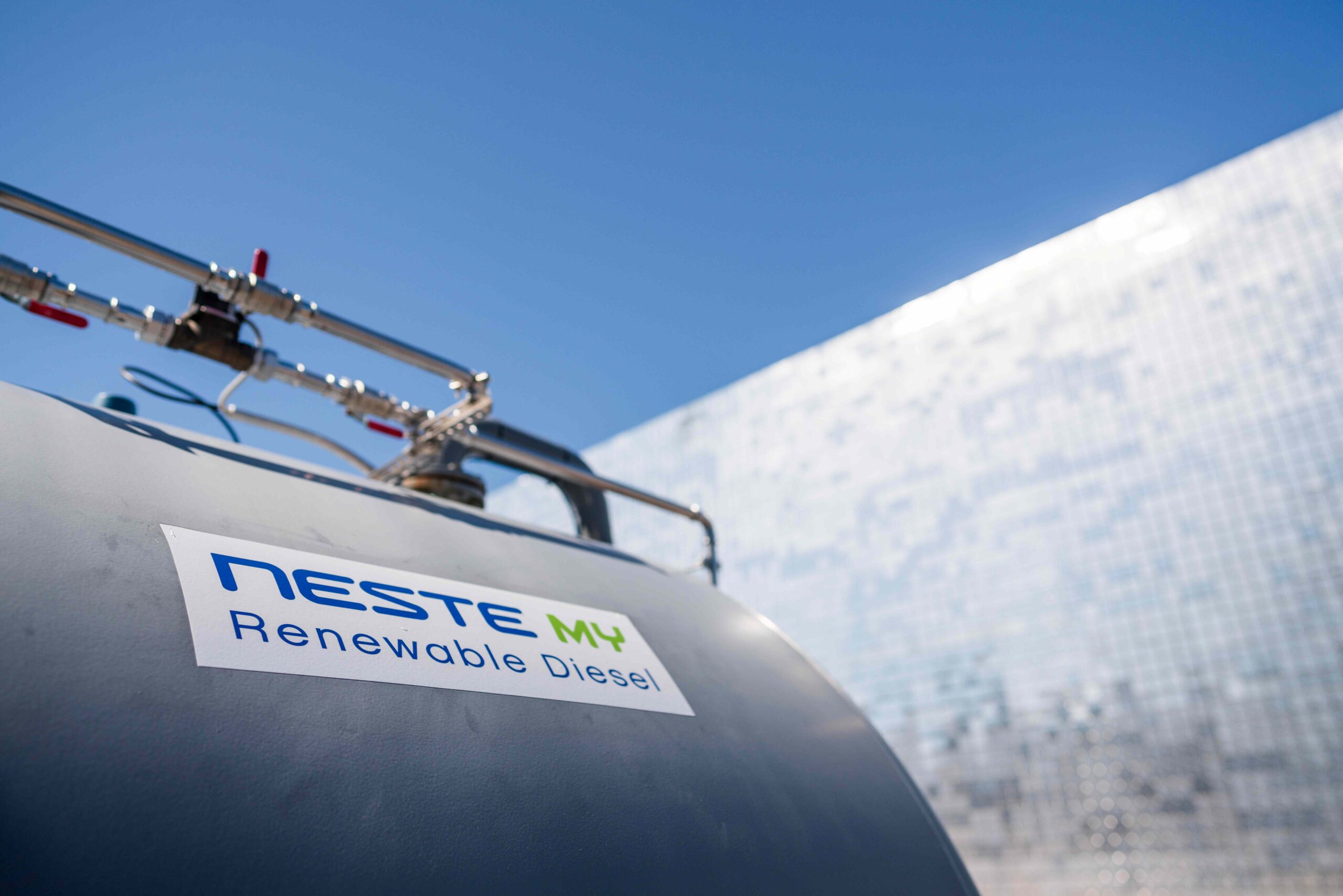Reduces generators’ greenhouse gas emissions by an average of 90 per cent[1] and helps customers meet their sustainability targets
16 October 2024 – Verne, provider of sustainable data center solutions for high intensity computing, has announced it is partnering with Neste, the world’s leading provider of renewable diesel and sustainable aviation fuel (SAF), to power back-up generators at its Finnish data centers in Helsinki, Pori, and Tampere. By switching to Neste MY Renewable Diesel™, Verne expects to reduce back-up generator greenhouse gas emissions by an average of 90 per cent over the lifecycle of the fuel when compared to fossil diesel1. This initiative is part of the company’s commitment to minimise the environmental impact of its own data center operations and to make it easier for customers to meet their sustainability goals.
Neste’s renewable diesel is a Hydrotreated Vegetable Oil (HVO) made from 100 per cent renewable raw materials, such as animal fat from food industry waste, used cooking oil, and various waste and residues from vegetable oil production. With a similar chemical composition to fossil diesel, Verne is able to make the switch to renewable diesel without any modifications to its infrastructure.
Crucial for Verne’s Finnish operations, renewable diesel is also better-suited to very cold weather conditions than fossil diesel. It can be stored in temperatures as low as -32°C with better start-up and throttle response. Importantly for back-up power – which is only required during outages to primary power sources – it can also be stored over long periods of time without deterioration in quality or water accumulation.
“Verne’s mission is to provide data center services that don’t cost the earth and this switch to renewable diesel is a key milestone for the company and our customers, as it means we will be able to eliminate fossil fuels from our operations in Finland,” said Kim Gunnelius, Head of Finland at Verne. “While our back-up generators are only deployed in the event of an extended power failure – which is thankfully extremely rare due to Finland’s highly reliable grid – they are tested regularly, so it is important we minimise the impact they have on the environment. As well as helping us reduce GHG emissions, Neste’s renewable diesel works very effectively at cold temperatures so is the ideal solution for our Finnish operations.”
“Collaboration is key when we are taking the necessary steps to fight the climate change.
Verne, as one of the pioneers in its industry, is working towards a more sustainable future, and we are excited to be a trusted partner supporting its journey. This partnership showcases the ease of switching from fossil fuel to Neste’s lower-emission renewable diesel that can be done without compromising the performance or the reliability of data center operations,” says Joni Pihlström, Vice President, Marketing & Services, B2B Sales at Neste.
About Verne
Verne delivers sustainable data center solutions that enable organisations to cost-effectively scale their digital infrastructure while reducing their environmental impact. The company’s four Nordic data centers – located in Iceland and Finland – are all powered by attractively-priced, 100 percent renewable energy and are engineered for high intensity workloads, while its hyper-connected central London data center is the optimal location for latency and connectivity sensitive applications.
Verne’s on-site experts provide unparalleled support to ensure optimised operations for customers from all industries.
Neste in brief
Neste (NESTE, Nasdaq Helsinki) uses science and innovative technology to transform waste and other resources into renewable fuels and circular raw materials. The company creates solutions for combating climate change and accelerating a shift to a circular economy. Being the world’s leading producer of sustainable aviation fuel (SAF) and renewable diesel and a forerunner in developing renewable and circular feedstock solutions for polymers and chemicals, the company aims to help its customers to reduce their greenhouse gas emissions by at least 20 million tons annually by 2030.
The company’s ambition is to make the Porvoo oil refinery in Finland the most sustainable refinery in Europe. Neste is committed to reaching carbon-neutral production by 2035, and will reduce the carbon emission intensity of sold products by 50% by 2040. Neste has also set high standards for biodiversity, human rights and the supply chain. The company has consistently been included in the CDP and the DJSI lists of the world’s most sustainable companies. In 2023, Neste’s revenue stood at EUR 22.9 billion.
[1] Over the life cycle of the fuel when compared to fossil diesel. The GHG emission reduction percentage varies depending on the region-specific legislation that provides the methodology for the calculations (e.g. EU RED II 2018/2001/EU for Europe and U.S. me California LCFS for the U.S.), and the raw material mix used to manufacture the product for each market.
